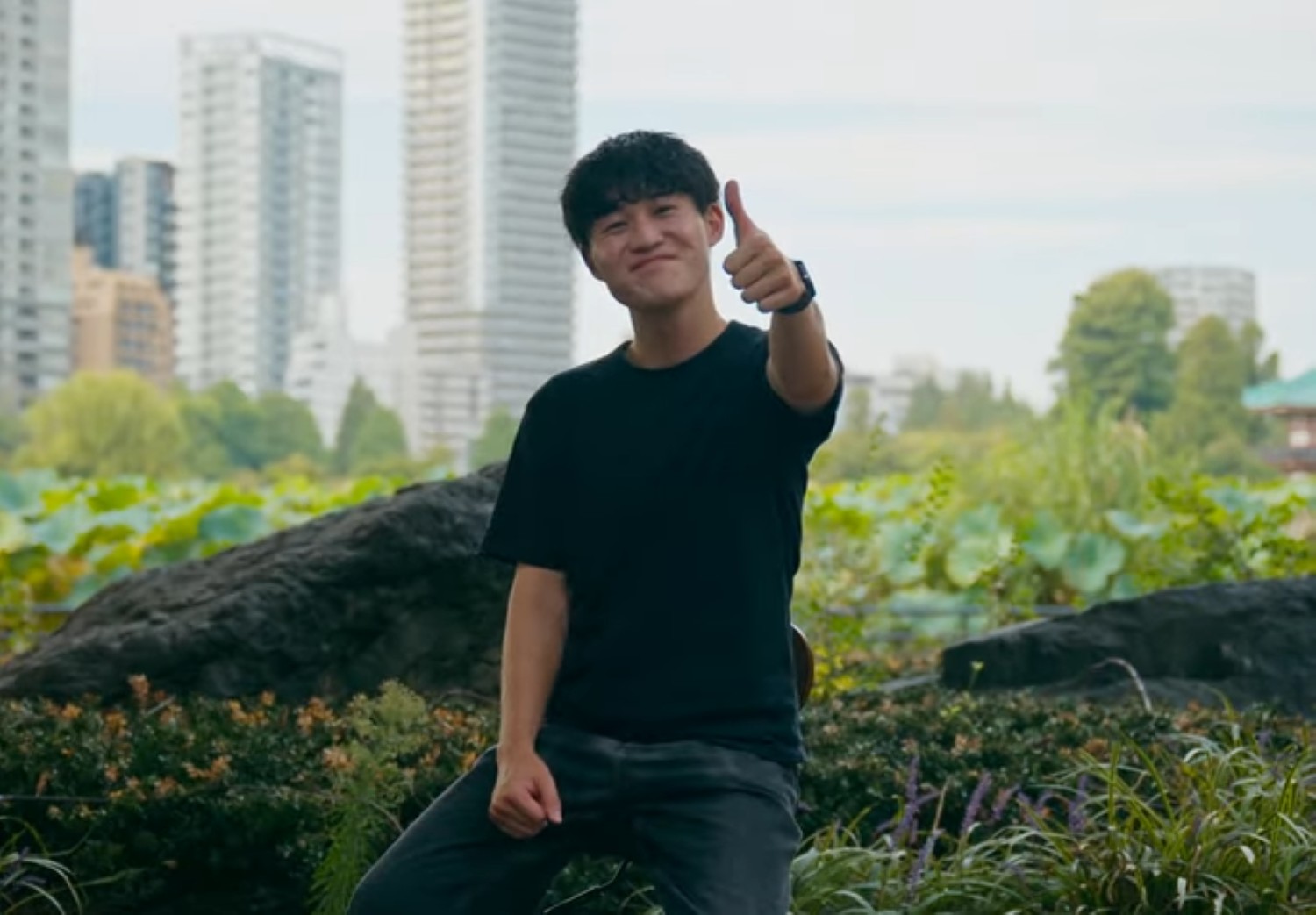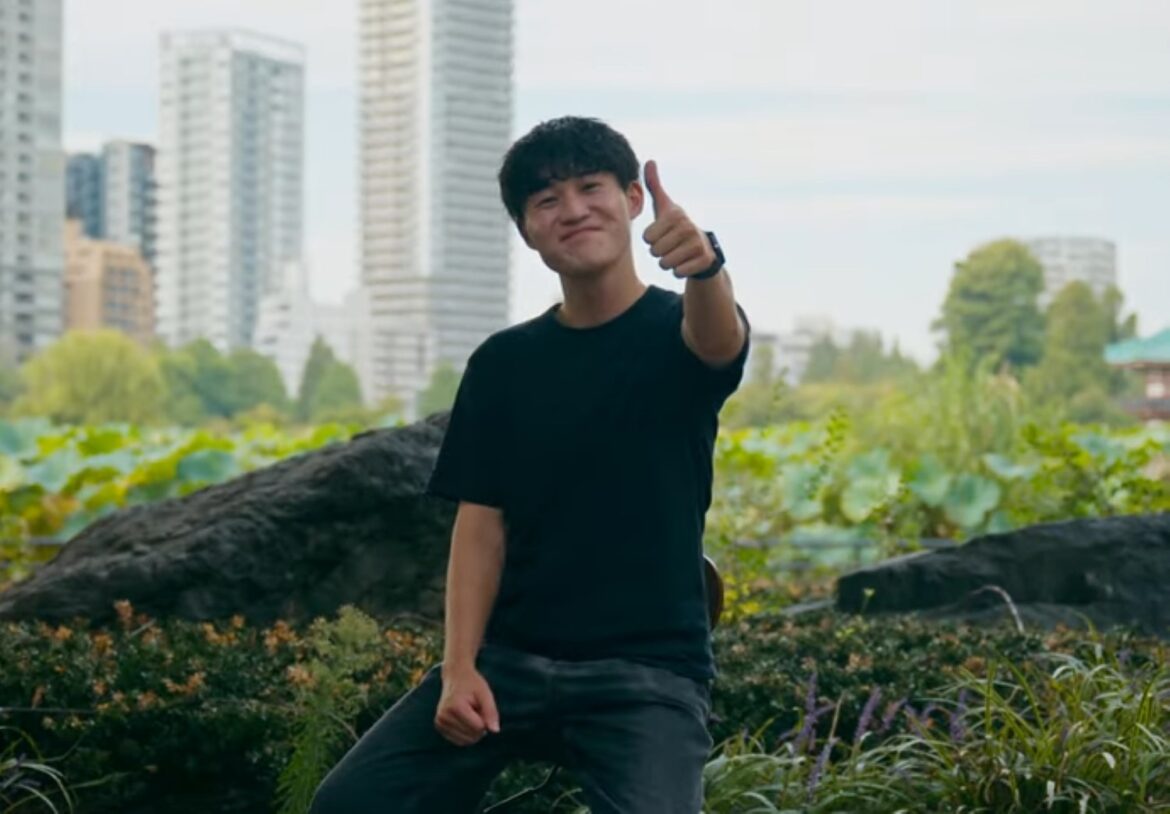If you’ve ever scrolled through Instagram or TikTok and found yourself deep in a rabbit hole of “What do Japanese people REALLY think…?” videos, you’ve probably seen “Riki With Japan Mates.”
He’s the Osaka-born, Tokyo-based creator who approaches total strangers with a mic, a smile and an uncanny ability to get people talking — even if they don’t plan to.
We recently filmed a behind-the-scenes video with Riki to see how he actually works on the street, where he chooses to film, how he approaches people and what happens when someone says “no.”
Spoiler: it happens a lot
Who Is Riki_With_Japan_Mates?

He’s looking for a good conversation.
Riki spent nearly two years abroad in Canada and the U.S., a chapter of his life that sparked his fascination with bridging Japanese culture and the rest of the world. Today, he’s in Tokyo balancing two careers: content creator and business owner.
His channel, Riki_with_japan_mates, focuses on interviewing both Japanese locals and foreigners living in Japan. His goal is to share honest perspectives about daily life, cultural gaps and the moments of confusion and joy that come with living here.
He says street interviews weren’t a grand artistic choice, but simply matched his personality:
“Talking to people and drawing out their real thoughts was always one of my strengths from my sales and recruitment days,” Riki told us. “I was too shy to film alone in front of the camera.”
Sometimes the simplest origins make the most authentic creators.
Street Interviews in Japan Aren’t Easy

Stopping strangers on the street and sticking a camera in their face takes a bold personality — especially in Japan, where people are famously cautious about privacy and meiwaku (causing trouble).
“Getting rejected is the default,” says Riki, “So my rule is just to keep asking and never give up (laughs).”
Behind that joke is a pretty careful system. In Japan, you can generally film in public spaces, but using someone’s image in a video — especially for a channel or business — falls into the gray area of shozoken, or image rights. In practice, that means:
He always asks clearly for permission before recording.
If someone seems hesitant, he doesn’t push it.
If someone changes their mind later, they can cut the clip.
Moreover, he has to consider where he’s filming. Private property, like department stores, malls or certain plazas, may require permission from the facility, and he avoids shooting in places that feel too intrusive (for example, directly in front of schools, clinics or people clearly on personal business).
Rather than carrying around a stack of scary legal forms, Riki relies on clear verbal consent and being very transparent about how the footage will be used.
If someone says no? He smiles, thanks them and moves on. But people often open up because they don’t feel tricked or pressured. Sure, that means lots of no’s, but plenty of laughs and the occasional surprisingly deep conversation with a total stranger.
Riki says Japanese communication emphasizes avoiding rudeness or disrespect — especially when interacting with strangers.
“But once you become friends? Japanese people can talk endlessly.”
Representing Japan and Shifting Attitudes
Click here to read more.
External Link
https://gaijinpot.com/
© GaijinPot


AloJapan.com